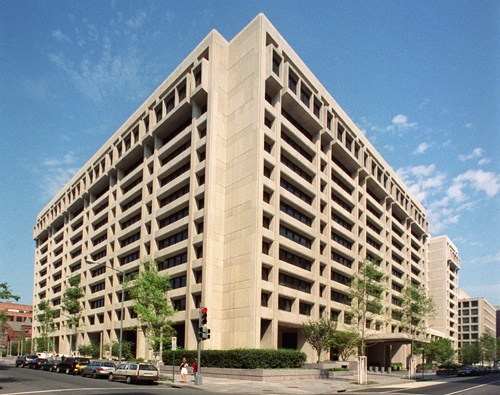Business and Economy
Biggest challenge for central banks is to reduce inflation: IMF

FILE: IMF Headquarters, Washington, DC. (Photo by International Monetary Fund, Public Domain)
ANKARA – The biggest and immediate challenge for central banks in both advanced and emerging market economies is to bring inflation down, International Monetary Fund (IMF) Managing Director Kristalina Georgieva said on Thursday.
“We see central banks tightening monetary policy to restore price stability. Although there is broadly an agreement among central banks that monetary policy should stay the course, challenges related to how to manage the monetary tightening cycle remain open,” she said at the 23rd Jacques Polak Annual Research Conference held in Washington, D.C.
To lower record inflation that climbed to its highest level in more than 40 years in some countries, central banks of major economies have begun an aggressive monetary tightening cycle.
The US Federal Reserve has hiked its benchmark interest rate by a total of 375 basis points, or 3.75%, since March; while the Bank of England raised interest rates by 75 basis points, its largest single hike since 1989, which marked the eighth consecutive hike.
Despite the aggressive monetary tightening, annual consumer inflation in the US rose 7.7% in October, while inflation in the UK jumped 10.1% in September year-on-year.
“Inflation is at multi-decade highs, with rising food and energy prices, persistent supply-chain disruptions, and mounting debt vulnerabilities.
Financial conditions are tightening, while capital flows and exchange rate volatility have increased dramatically—and this is especially concerning for low- and middle-income countries as they face all these challenges coupled with financing constraints and limited access to markets,” Georgieva explained.
The IMF chief said the priority should be to protect vulnerable households from the impact of rising food and fuel prices, and that fiscal policies should not further increase inflation and sidetrack the efforts of monetary policy. (Anadolu)





















